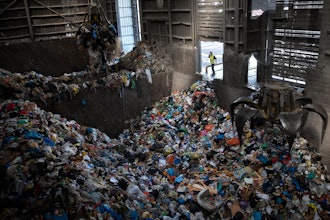MONTGOMERY, Ala. (AP) — Though Alabama Gov. Robert Bentley ordered a halt to the sale of synthetic marijuana last fall, a pair of bills in the state Senate would make sure chemists can't change the formula of their fake pot in order to skirt the rule — a problem other states are grappling with.
Grove Hill Democratic State Sen. Marc Keahey has filed a bill in advance of next week's opening of the Legislature that would ban the possession of any substance that is capable of having the same psychoactive effects as marijuana.
Decatur Republican Sen. Arthur Orr also plans on introducing a bill that would go farther to outlaw any product that mimics the effects of any illegal drug.
"We're gonna push this very hard," Orr said. "I'm confident this will address the issue once and for all."
Products with names like "Spice" and "K2" were marketed as incense or potpourri, but when smoked or ingested they yielded a high similar to marijuana.
Alabama isn't the only state grappling with abuse of the designer drugs. As of October, at least 40 states had banned synthetic marijuana and eight more were working on outlawing it, according to the National Conference of State Legislatures.
Last October, Bentley issued an executive order directing law enforcement to remove all such products from store shelves in Alabama. However, other states — such as Florida — have seen manufacturers alter the chemicals in their fake pot in order to get around state laws.
States such as Florida had banned the specific chemicals in the synthetic weed, but chemists were able to circumvent those laws by slightly altering their formula.
"It's a significant problem," said David Gross, a drug inspector with the Florida Department of Law Enforcement's Office of Statewide Intelligence.
"We want them out of our stores and we want them out of Florida," Gross said. "It's dangerous. They know full well individuals, in particular young folks, are ingesting these substances."
States like Idaho have a more general ban, outlawing anything with marijuana-like effects or outlawing the core ingredients of the fake weed.
"Our legislature outlines the backbones structure instead of the specific chemicals themselves, so it prevents the substitutions chemists can do to avoid bans that name chemicals," said Caitlin Zak, program manager in the Idaho Office of Drug Policy.
The problem became prevalent recently when the state saw Spice-related calls to poison control — such as those from emergency rooms or worried parents — jump from 10 to 1,000 over a six-month period. Since the law took effect last spring, it has been effective in stopping the use and sale of synthetic marijuana.
Keahey says he hopes his bill will be equally effective in stopping companies that make the fake pot from circumventing the law. In addition to naming specific chemicals, the proposal outlaws "Any chemical compound that is capable of exhibiting cannabinoid (the active chemical in marijuana) like psychoactivity."
"I discussed this legislation and the issue in great detail with a lot of my local ABC (Alabama Alcoholic Beverage Control) agents in and around my district," he said.
"It's a huge problem with our kids. I've received a large number of calls from principles in our public schools in my part of the state."
He said even with the governor's executive order, chemists might not be prevented from tampering with the formulas to keep their products on shelves.
Since Bentley ordered law enforcement to seize all synthetic marijuana from store shelves, agents have taken more than $30 million worth of product, said Capt. Hal Taylor, assistant director of the Alabama ABC Board Law Enforcement Division.
"As far as we know it is all off the shelves," Taylor said. "We're still checking to make sure it is. It still could be some in the back room. Like any other illegal drug, once it becomes illegal it could be sold to people out of a car out back."
Taylor said his office has received calls about stores selling what they claim are legal versions of the fake pot, but they have not made any arrests.
"It's an ongoing thing," he said. "We're in the stores. We're still checking to make sure it's off the shelves. We continue to make sure it stays out of the hands of kids."






















